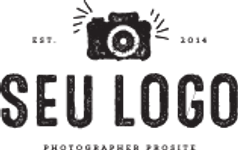Market Overview
The Saudi Arabia generic drug market size reached USD 3.8 Billion in 2024. It is expected to grow to USD 8.0 Billion by 2033, demonstrating a robust growth fueled by government initiatives, rising healthcare expenditures, and a growing prevalence of chronic diseases. The forecast period spans 2025-2033 with a CAGR of 7.9%. Key growth drivers include regulatory support by the Saudi Food and Drug Authority (SFDA), expansion of pharmaceutical manufacturing capacity, and increased consumer awareness about the affordability and efficacy of generics.
How AI is Reshaping the Future of Saudi Arabia Generic Drug Market
- AI-driven data analytics are optimizing pharmaceutical manufacturing processes, supporting Saudi Arabia’s government push towards enhancing local production capacity of generic drugs.
- Integration of AI in healthcare apps enables personalized patient management for chronic diseases, aligning with the rising demand for long-term generic medication use.
- AI-powered drug discovery platforms are accelerating the development and approval of cost-efficient generic drugs, complementing SFDA’s regulatory efforts.
- Machine learning algorithms improve supply chain optimization for generic drugs, reducing costs and increasing accessibility within retail and hospital pharmacies.
- AI supports pharmacovigilance by monitoring adverse effects and ensuring safety and efficacy standards, reinforcing consumer confidence in generics.
- Collaborative AI-driven platforms facilitate partnerships between global pharma leaders and Saudi retailers, exemplified by Bayer and Al-Dawaa Medical Services' recent initiatives.
Grab a sample PDF of this report: https://www.imarcgroup.com/saudi-arabia-generic-drug-market/requestsample
Market Growth Factors
The Saudi Arabian government's substantial investment in healthcare infrastructure is significantly driving generic drug market growth. Increasing healthcare spending has enabled expansion and enhancement of healthcare facilities, increasing the demand for affordable medications. For example, the Saudi Health Ministry’s initiatives effectively decreased average hospital duration and conserved 13,000 beds while promoting digital health solutions like mobile apps that connect patients with healthcare providers. These developments help curb overall healthcare costs and drive acceptance of generic drugs, which are as effective as branded drugs but more economical.
Regulatory reforms and government initiatives strongly promote the use of generic drugs in Saudi Arabia. The Saudi Food and Drug Authority (SFDA) facilitates easier approval and availability of generics while price controls on branded drugs make generics a more attractive option. The hosting of the 8th Global Health Exhibition under the theme "Invest in Health" in Riyadh exemplifies the Kingdom’s commitment to healthcare transformation in line with Vision 2030, fostering an environment conducive to generic drug growth. Subsidies and efforts to boost local pharmaceutical manufacturing reduce import dependency and stimulate the national economy.
The increasing prevalence of chronic diseases such as diabetes, hypertension, and cardiovascular ailments is generating sustained demand for long-term, cost-effective treatment options. With lifestyle changes and an aging population influencing disease incidence, continuous access to affordable medication is critical. Generic drugs meet this need by providing therapeutically equivalent alternatives at lower prices. Collaborations like Bayer’s partnership with Al-Dawaa Medical Services to promote heart health awareness underscore the market’s alignment with addressing chronic disease challenges through accessible generic medicines.
Market Segmentation
Therapy Area
- Central Nervous System
- Cardiovascular
- Dermatology
- Genitourinary/Hormonal
- Respiratory
- Rheumatology
- Diabetes
- Oncology
- Others
Drug Delivery
- Oral
- Injectables
- Dermal/Topical
- Inhalers
Distribution Channel
- Retail Pharmacies
- Hospital Pharmacies
Regions
- Northern and Central Region
- Western Region
- Eastern Region
- Southern Region
Key Players
- Bio-Thera Solutions (Bio-Thera)
- Tabuk Pharmaceutical Manufacturing (Tabuk)
- SteinCares
- Apex Pharma
- Eisai Co., Ltd.
- Formycon
- MS Pharma
- Bayer
- Al-Dawaa Medical Services
Recent Development & News
- February 2025: Bio-Thera Solutions partnered exclusively with Tabuk Pharmaceutical Manufacturing to produce, distribute, and market BAT2206, a biosimilar to Stelara, in Saudi Arabia. Concurrently, Bio-Thera expanded distribution rights in Latin America, enhancing its biosimilar portfolio and global market reach.
- March 2025: Apex Pharma launched operations at its first pharmaceutical facility in King Abdullah Economic City, aiming to produce 10 to 14 generic pharmaceuticals and start product distribution post-Hajj, boosting local production capabilities.
- May 2024: Formycon and MS Pharma received marketing approval from the Saudi Food and Drug Authority for FYB201/ranibizumab Ravegza, a biosimilar to Lucentis, providing treatment options for severe eye conditions and enhancing market offerings.
Customization Note
If you require any specific information that is not covered currently within the scope of the report, we will provide the same as a part of the customization.
About Us
IMARC Group is a global management consulting firm that helps the world’s most ambitious changemakers to create a lasting impact. The company provide a comprehensive suite of market entry and expansion services. IMARC offerings include thorough market assessment, feasibility studies, company incorporation assistance, factory setup support, regulatory approvals and licensing navigation, branding, marketing and sales strategies, competitive landscape and benchmarking analyses, pricing and cost research, and procurement research.
Contact Us
IMARC Group,
134 N 4th St. Brooklyn, NY 11249, USA,
Email: sales@imarcgroup.com,
Tel No: (D) +91 120 433 0800,
United States: +1-201971-6302

